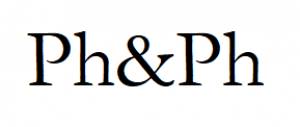The Department of Contemporary English Language (DoCELu) is happy to invite all interested parties to the lecture on 'The production of Estonian palatalization by Estonian and Russian speakers', given by Anton Malmi from the University of Tartu.
The event will be held online on 7 November 2023, at 6:30 p.m., via the Microsoft Teams Platform.
Abstract:
I am interested in phonemes – the smallest meaningful units of a language. Words are made up of
phonemes, and words have meanings that can easily be changed by making small adjustments in
pronunciation. Sometimes, the changes in vowels or consonants occur when they are adjacent to
other phonemes. For instance, a consonant can be palatalized near a high vowel. Palatalization is the
reason Estonian has several orthographically similar word pairs like palk (palga) and palk (palgi) or
sulg (sulu) and sulg (sule). My thesis concentrated on questions like: does the palatalization of a
consonant only affect the consonant itself, or is it a part of a more extensive speech planning
process? What are the main articulatory properties that describe Estonian palatalization?
I also wanted to know how native Russian speakers produce Estonian palatalization. The thesis is
based on the hypothesis that Estonian palatalization is difficult for the native Russian learners of
Estonian and contributes to their speech accent. Language acquisition models state that speech
accent is present because of the effect that our native language has on our pronunciation. When we
learn another language, we must constantly adjust our pronunciation to sound more natural. The
results of the thesis showed that we unconsciously plan ahead of the movements of the tongue while
speaking. We are constantly trying to be economical in how we speak, and we try to be quicker and
smoother in articulating words and sentences. The results also showed that the changes that
palatalization caused were mainly observable in the preceding vowel. The data also showed that the
native language of the speaker affects the way we produce another language and contributes to
speech accents. There was a lot of variation in the native Russian group. Some speakers did not use
palatalization where necessary, and others did. The ones that did palatalize had a slightly different
pronunciation than native speakers.
